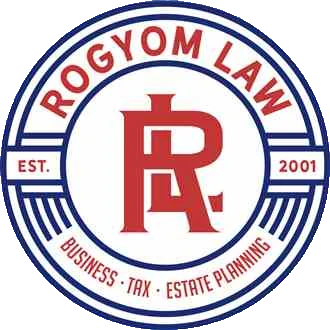Buying or Selling a Maryland Business: Taxes
Maryland Business Sale Lawyer
In this article I address basic tax concepts and issues relating to a business sale. For information on other issues and concerns in a business transfer, please see my article, Buying or Selling a Business in Maryland.
A major consideration when purchasing an existing Maryland business should be minimizing the tax burden. Certain transactions provide tax benefits to either the purchaser or the seller while providing a tax burden to the other. Therefore, tax consequences should be considered when determining the appropriate purchase price.
Business Transfers and Taxes in General
The general rule is that the sale of a business is a taxable event; however, the parties may be able to structure the transaction using a tax-free reorganization.
The IRS provides several forms of tax-free reorganizations, but to qualify the parties must meet numerous requirements. Since the IRS only allows tax-free reorganizations under limited circumstances, I will first discuss taxable transactions.
Taxable Business Sales
As a taxable transfer, the buyer and seller have two general options: using stock sale or asset sale tax rules. Though conceptually similar, I will discuss the tax consequences of a partnership sale in a separate article. The seller generally favors a stock sale because the seller is taxed upon sold stock using the capital gains rate (15%).
In contrast, an asset sale’s seller may be required to use the higher ordinary income tax rate for certain assets sold.
Buyers generally favors an asset sale, because an asset sale increases the basis of the company’s assets (rather than the basis of the purchased stock). Therefore, following the purchase of the business, the buyer may sell assets realizing less income tax and may depreciate the acquired assets for tax purposes using the assets’ new, higher basis.
Balancing the buyer and seller’s opposing tax burdens and benefits requires an analysis by a tax expert. While some ways of structing a sale will favor one party, if you analyze the company and its assets and the parties as well, you may find ways to structure a business sale so either both parties benefit or there will be a minimal impact to one compared to the tax benefit to the other.
Having an experience Maryland business attorney with knowledge of tax laws can dramatically improve the result from the sale of your business.
Tax-Free Business Transfers
To qualify as a tax-free transaction, the transfer must meet IRS requirements. Generally, it requires the “seller” to remain a partial owner of the resulting company. There are several forms of tax-free reorganizations appropriate for buying or selling a business.
The relevant reorganization formats are known as Type A, Type B, and Type C reorganizations, each referencing a paragraph of the Internal Revenue Code.
Each reorganization type requires some compensation be paid to the seller in the form of the purchasing corporation’s stock. A Type A reorganization requires at least 50% of the compensation value be paid in stock, while a Type B requires at least 80%. Type A permits compensation using either voting or nonvoting stock, in contrast to Type B which only permits compensation using voting stock.
A Type C reorganization requires the purchaser to acquire 80% of the target’s assets and pay the target solely in voting stock. Regardless of the tax-free reorganization type, amounts paid in something other than stock are immediately taxable.
State and Local Taxes – Bulk Sales Taxes
State and local taxes must also be considered. In addition to income and corporate taxes, most states will impose a sales tax upon owned or leased tangible personal property transferred during the sale. This form of sales tax is referred to as a “bulk sales tax”.
The Maryland Comptroller’s bulk sales tax imposes a 6% tax on the price of tangible personal property included in the purchase, unless an exemption applies. The Maryland bulk sales tax does not apply to inventory held for resale, titled vehicles, and certain production equipment.
The Maryland bulk sales and use tax specifically applies to furniture and fixtures, computer software, business records, customer lists, and non-capitalized goods and supplies.
Ready to get started? We’re Ready to Help.
If we cannot assist you, we will gladly provide you with referrals.
TESTIMONIALS

